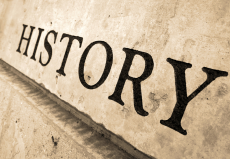

1.What was the industrial revolution? What main industries were involved?
The movement of industries from the domestic system to the factory system. Coal and iron industries.
2.Name a great engineer of the 19th century responsible for bridge and ships?
Isambard Kingdom Brunel
3.Give two specific examples of his work?
Great Western Railway, HMS Great Eastern
4.Name the engineer responsible for the London sewage system?
Joseph Bazalgette
5.Give two examples of inventions that helped increase factory production?
Spinning jenny and the steam engine
6.What do we mean by the term ‘agricultural revolution?’
The enclosure system was used instead of the open field system
7.Why were children employed by factories and mines?
Lower wages, more agile
8.List the dangers associated with working in factories and mines?
Noisy, hot, overcrowded, injuries from machines, death, diseases from chemicals used, getting stuck in machines
9.What was the urban revolution?
The development of agricultural villages into industrial cities
10.What were the problems with roads in the 18th century?
Lots of traffic, increasing need for repair, blockages, highwaymen, flooding, bumpy, icy
11.Why were railways so important to the Industrial Revolution?
More resources could be transported to factories faster and cheaper
12.Why were canals so important to the Industrial Revolution?
Smoother and safer transport for fragile goods like China
13.Give an example of a railway and a canal built in the 19th century?
Liverpool and Manchester Railway, Caledonian Canal
14.What happened to population during the 19th century?
It doubled/ it increased massively (from approx. 21 million to approx. 40 million)
15.What were the symptoms of Cholera
Diarrhoea, vomiting, nausea, muscle cramps
16.How was cholera spread?
In Water
17.Give other examples of diseases in industrial towns?
Typhoid + Tuberculosis
18.What caused these diseases?
Bacteria/germs/pathogens
19.What were working conditions like in factories and mines?
Dangerous
20.How did living and working conditions gradually improve?
The Factory Acts and Trade Unions improved working and living conditions
21.Name two of the new industrial towns?
Liverpool, Manchester
22.Who was the Earl of Shaftesbury?
A leading campaigner for the reform of working conditions
23.Why did the industrialists and workers want electoral reform?
Because huge industrial towns had no MPs, rich landowners from rotten boroughs were MPs
24.Why did landowners argue against electoral reform?
Because they believe that someone must own part of a country to have a say in its running
25.What was a rotten borough?
A borough which would elect an MP but by 1832 had very few or no voters
26.In which year was the Great Reform Act? What changes did it introduce?
1832, more people could vote, 56 rotten boroughs lost their MPs, large industrial towns got more MPs, Middle class industrialists got the vote
27.In which year did women get the vote?
1918
28.Who could vote at the beginning of the 19th century?
Only landowners with property worth over 40 shillings
29.Who was monarch from 1837-1901?
Queen Victoria
30.What does democracy mean? What is the franchise?
A system of government where the whole population has the right to vote for government representatives from different political parties. It means anyone is entitled to vote
image- https://jagsmag.jags.org.uk/?p=747

0 Comment:
Be the first one to comment on this article.